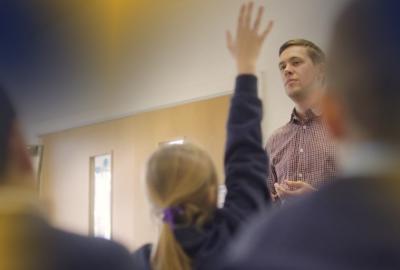The way we care for the elderly says a lot about the type of people we are and the society we live in. In the UK we have an aging population - by 2040, nearly one in seven people is projected to be aged over 75 - which means the way care is delivered is going to become even more important.
Employing skillful and empathetic carers is the best way of making sure the elderly get the care and attention they deserve and at Randstad we look beyond the skills of our candidates and consider what type of person they are, too.
Creative care in the UK
But for carers looking to make a lasting difference more and more are adopting non-traditional methods - especially while budgets remain tight - and showing ingenuity and creativity. With that in mind, here are some of the innovative techniques being either planned or introduced to improve elderly care.
A night at the opera
It’s not unusual for care homes to host cabaret acts to entertain their residents but rather than listening to an Elvis Presley tribute act, some are now being treated to opera. Written by Rachel Barnett, ‘Six Characters in Search of an Opera’ is thought to be the first opera produced specifically for care settings.
So far it’s been performed across London and the south west in care homes, dementia units, community day centres and hospices. Reviews have been good, too, with residents and patients swaying and singing to the performance and, most importantly, left smiling.
Reminiscence Room
One of the most tragic disorders our carers see is in patients is dementia. This condition robs sufferers of one of the most important functions of the brain: memory. One of the ways carers try to improve their condition is through cognitive stimulation, which is where people take part in activities and exercises designed to improve their memory.
One creative interpretation of this can be seen at a care home in Sale, Manchester, which transports its residents back to the 1950s with a ‘Reminiscence Room’ complete with things like furniture and music from the decade to encourage people to remember their past.
Artificial intelligence
Healthcare is one of the few sectors where automation will never completely take over but there are roles where technology could help humans. Academics claim that robots could reduce pressures on care homes and hospitals by providing services like taking tablets and offering companionship.
But while technology can play an important role in performing tasks like reminding patients to take medication, care will always need a human touch.
- Victoria Short is managing director of Randstad Public Services







